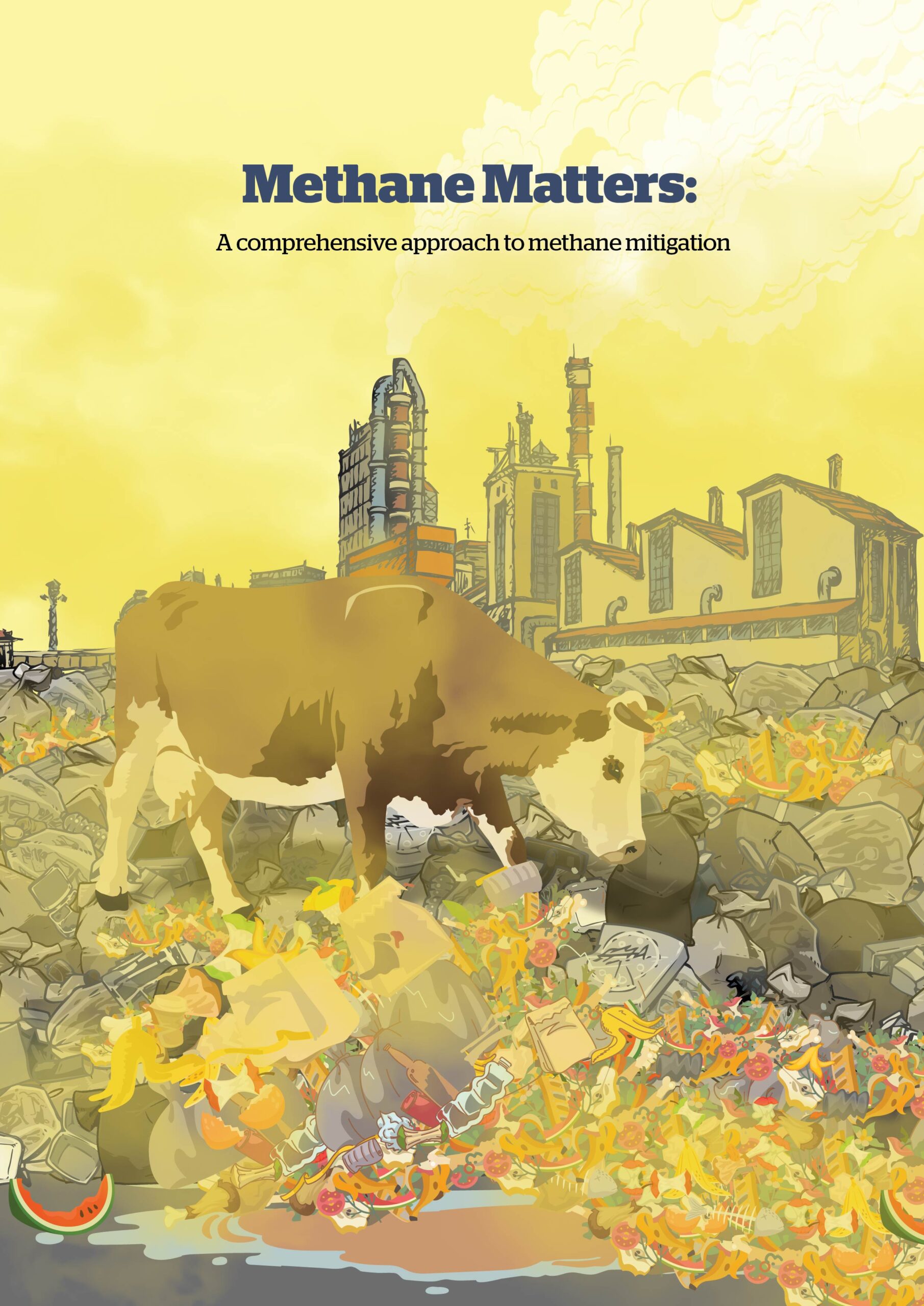The quickest and most cost-effective action which governments can take to cut methane emissions and deliver on the Global Methane Pledge are set out in a new report released by environmental groups today. The plan compiled by the Global Alliance for Incinerator Alternatives (GAIA), Changing Markets Foundation, and the Environmental Investigation Agency (EIA) provides a benchmark against which national action can be measured.
The importance of cutting non-CO2 emissions such as methane is expected to be highlighted in the Intergovernmental Panel on Climate Change (IPCC) climate solutions report due out on 4th April.
More than 110 countries have signed the ‘Global Methane Pledge,’ a promise to reduce worldwide emissions of methane by 30% by 2030, relative to 2020 levels. However the pledge falls short of the 45% reduction which the UN estimates is needed to limit global heating to 1.5C and none of the governments have set out comprehensive plans to cut emissions across all three sectors and action within each sector is patchy.
Professor Robert Howarth, Earth Systems scientist at Cornell University said:
“This report shows that there are many cheap and effective ways of cutting methane emissions – from investing in energy efficiency and renewables, to supporting a shift to healthier diets with less and better meat and dairy, and eliminating waste. Tackling methane is the low hanging fruit of climate action which governments need to grasp if we are to have a chance of keeping global temperature rises below 1.5C.”
The report, ‘Methane Matters,’ outlines the steps governments can take to cut emissions from the three main sources linked to human activity: agriculture (40% of emissions), energy (35%) and waste (20%):
- Agriculture: Few countries have targets or policies to tackle methane emissions from livestock production even though the sector is responsible for 32% of global emissions and rising. Governments’ largely focus on technical fixes, such as animal feed additives, that can reduce emissions by 30 million tons a year by 2030. They ignore policies which encourage healthier diets with less and better meat and dairy which could cut emissions by 80 million tons a year over the next few decades – and deliver over half the cuts needed to avoid 0.3C of global heating by the 2040s.
- Energy: While some governments are
taking steps to reduce methane emissions, overall progress is slow and lacks ambition, and requires a fundamental shift in thinking. Methane mitigation coupled with a swift deployment of clean and efficient technologies could reduce emissions by around 75% between 2020 and 2030. More than 80% of mitigation measures can be implemented at negative or low cost using existing technologies and practices and by applying regulation to both the production and import of energy. EU imports of oil and gas in 2020 were responsible for 10 times more methane than the energy produced within the EU.
- Waste: Over a half of countries with national climate plans have failed to include measures to cut emissions from organic waste. Emissions from solid waste – the biggest source of methane in the sector – can be cut by as much as 95% by 2030 through low cost, scalable and easy to implement measures focused on waste prevention and the separation and treatment of organic waste. Composting alone could reduce solid waste methane emissions by 78% by 2030. Successful examples include South Korea where 95% of all food discards are composted or used in animal feed or biofuel production thanks to initiatives such as a pay-as-you-throw law.
Mariel Vilella, Director of Global Climate Program, Global Alliance for Incinerator Alternatives (GAIA) said:
“On a rapidly warming planet, we don’t have time to keep burning and burying our waste. By tackling the waste sector, governments will get fast results using some of the easiest and most affordable methane reduction strategies available. Zero waste strategies not only draw down methane, but can build climate resilience, create more and better jobs, reduce waste management costs, and support a thriving circular economy. While business as usual — incineration and energy production from waste — is a recipe for disaster, cities around the world are already reaping the benefits of organic waste prevention and composting.”
Methane is responsible for almost a quarter of human-caused warming to date, and concentrations are increasing faster now than at any time since the 1980s. The short lived but potent greenhouse gas has 82.5 times more warming potential than CO2 over a 20-year timespan but degrades in just 12 years.. As a result a 45% cut in methane emissions could reduce global heating by 0.3°C in the next decade – buying much needed time for longer term measures to kick in.
The report also highlights wider benefits of tackling methane emissions including secure supplies of energy, a reduction in pollution and deforestation, the creation of millions of new jobs, and better public health. For example, because methane contributes to the formation of ground-level ozone, a 45% cut in emissions could help prevent 255,000 premature deaths and 775,000 asthma-related hospital visits each year.
Marcello Mena, CEO of the The Global Methane Hub, a $330 million philanthropic initiative to reduce global methane emissions said:
“This new report reminds us that we must deliver, and go beyond, the Global Methane Pledge to ensure that we keep warming under 1.5 degrees in the short-term. The sector-by-sector analysis of what must be done provides a clear roadmap that we must implement urgently. It is also a call for deeper, more transformational change. The Global Methane Hub will support countries and partners that want to lead the way on methane mitigation.”

DOWNLOAD THIS RESOURCE

